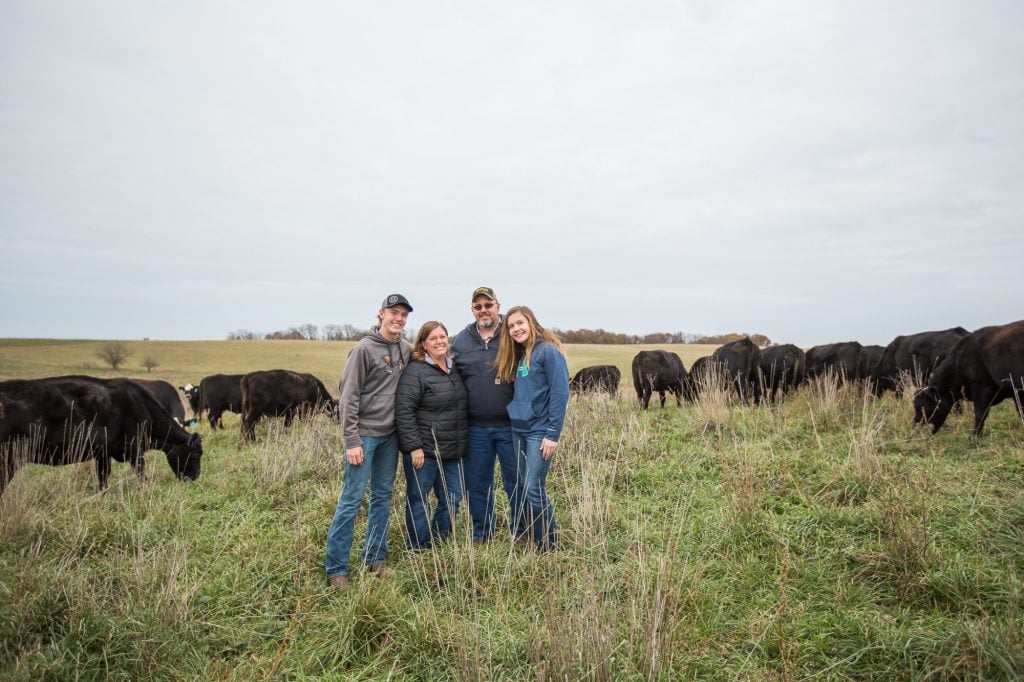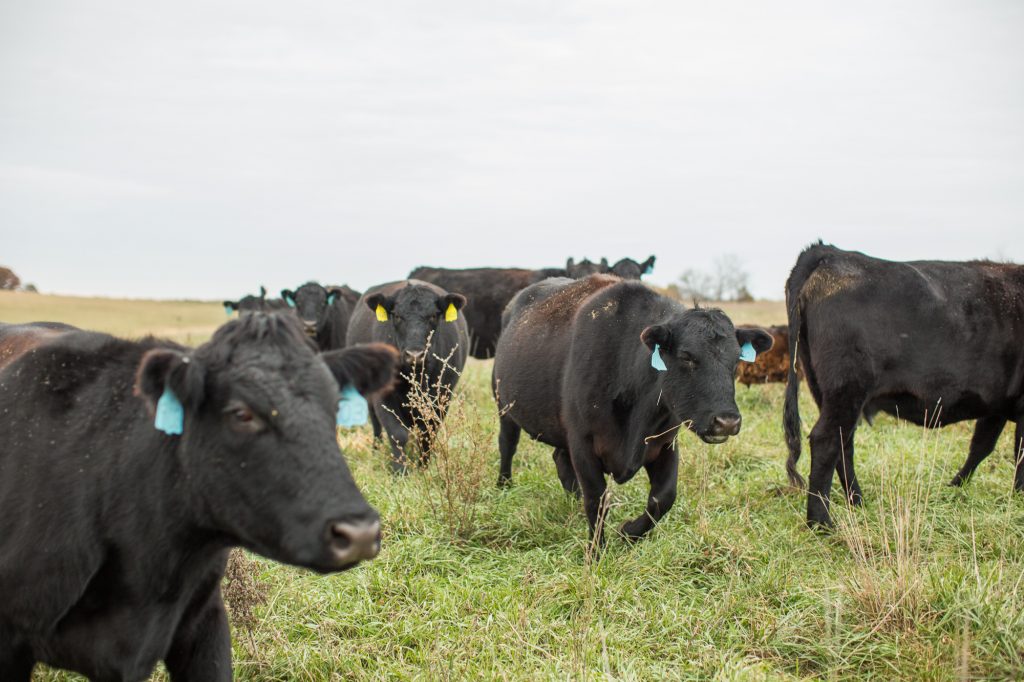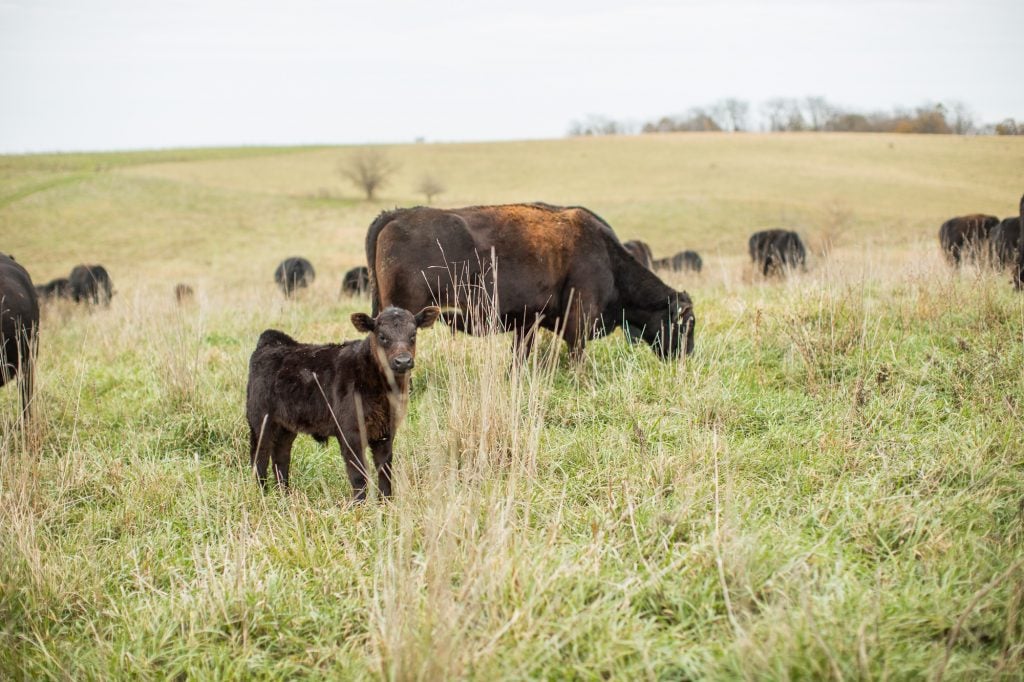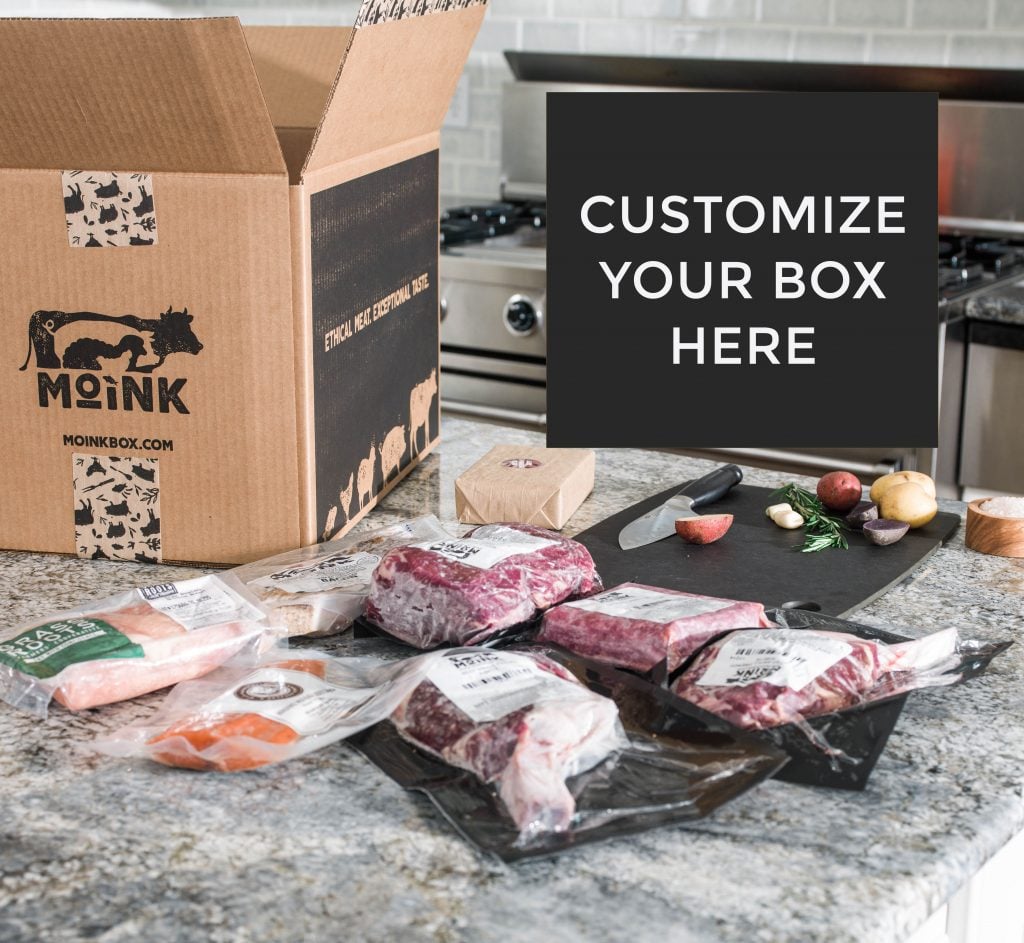Location: Unionville, MO
Meet Our Farmers: Chris Schnelle, Schnelle Farms
Five years ago, Chris Schnelle came home. He returned to the 1,350-acre farm in Unionville, Missouri, where he was raised, to take over where his father left off. “This land has been in our family since 1893,” he said. “When my dad passed away, my wife, Christina, and I left our careers to come back and run things.”

Caring for the Land and Animals
The farm is completely pastureland, not very tillable for growing crops, but perfectly suited for raising livestock. It’s easier on the land and protects the soil from erosion. The Schnelles raise hogs the “old school” way in the pasture, but their main operation is the care of 350 mama cows and their calves.
“We raise the babies until they’re about six months old,” said Chris. “Then we send them to farms where they can live out their days on a pasture, not a in a confinement building. The care on feed lots just doesn’t work out ethically for me. We want our cows to spend their entire lives in a natural setting.”
A More Holistic Way
The Schnelles’ cows are completely grass-fed, with no supplementation to make them grow faster. Many farmers give their cows chemically-processed feed filled with genetically-modified corn, soybeans, gluten and byproducts, but Chris prefers to let mother nature and their mamas take care of the calves during their time on his farm.
“We have to manage our grass a lot closer than the other guys,” said Chris. “We pay special attention to how the cows are grazing each day to compensate for the fact that they’re not getting all the supplemental feed. Our cows don’t grow as quickly as the big food companies’ do, but it’s worth it to us to raise our livestock in a more holistic way.”

While many ranchers would view going completely grass-fed as a financial road block, Schnelle Farms makes it work by raising more cows and strategically managing the grass growth and consumption through a system called Rotational Mob Grazing. When animals move and eat in a tight pack, it means they’re always eating the healthiest grass first. Each field is given a full six months to grow back before it’s completely grazed again. Chris explained:
“Studies show that every time you move a cow to a new paddock, she’ll eat the largest quantity of grass on days one and two. She’ll take in about 30% less on days three and four, meaning she’s missing out on the opportunity to build body condition and take care of her calf. It’s important to play to her natural instincts, always keeping her with her herd on new, healthy grass.”

Making the Food-Farm Connection
The Schnelles wish people would take the time to visit farms more, to see where their food comes from. According to Chris, “Any logical person would be able to put things together if they actually saw how Big Ag treats the cows verses the family farm. I wish more shoppers would do their research to find out how the meats they’re buying are processed, and how the animals are treated. It’s a big deal, and when you do your homework, the best choice is clear.”
_________
Ready to experience humanely-raised, exceptionally-tasting grass-fed beef? Try a Moink Box Today.
At Moink, our farmers are like family. Moink is farmer owned and we love introducing you to the men and women who compassionately and skillfully raise our animals. Check back for regular Meet our Farmers posts.
Ready to join the Moink Moovement and help us fight for the family farm?
